Dubrovnik (Croatia, Port Gruz)
Cruise Port schedule, live map, terminals, news
Region
Mediterranean - Black Sea
Local Time
2024-11-29 09:42
 51°F
51°F 10.3°C

 Gentle breeze
Gentle breeze4.7 m/s
 63 °F / 18 °C
63 °F / 18 °C 38 °F / 4 °C
Port Dubrovnik cruise ship schedule shows timetable calendars of all arrival and departure dates by month. The port's schedule lists all ships (in links) with cruises going to or leaving from Dubrovnik, Croatia, Port Gruz. To see the full itineraries (ports of call dates and arrival / departure times) and their lowest rates – just follow the corresponding ship-link.
| Day | Ship | Arrival | Departure |
|---|---|---|---|
| 21 December, 2023 Thursday | 09:00 | 20:00 |
Dubrovnik is an Adriatic Sea cruise port and city in Croatia, and one of Europe's historically most prominent and popular vacation travel destinations. The city has population around 43,000 (metro over 66,000). Other major Croatian passenger ports (cruise and ferry) are Split, Zadar, Rijeka, Sibenik.
From Dubrovnik's Port Gruz (translated as "cargo port", locode HRDBV), regularly daily scheduled car and passenger ferries (operated by Jadrolinija) interlink the city with the Elaphites/Elaphiti Islands (Sipan, Lopud, Kolocep) and also with Bari Italy (4x weekly crossings, travel time 7,5 hours).
Medieval Dubrovnik (Ragusa) was founded by the Romans in the 7th-century BC. It was the second-largest independent city-state in the Adriatic Sea (after Venice Italy). This picturesque town is on the Dalmatian coast and is a major resort vacation destination, best-known for its stone-made double walls and fortifications.
The perfectly preserved Old Town is unique with its steep cobbled streets, marble-paved squares, stone-made churches, palaces, fountains. Among the city's historic buildings are two monasteries, the Rector's Palace, mint house, customs house. However, the most popular tourist attraction are the city walls (visited by over 1,1 million people in 2016) running almost 2 km (1,2 ml) around the city. The walls are 4-6 m (13–20 ft) thick on the landward side, but much thinner on the seaward side. The system of turrets and towers was intended for protection.
The city-state Ragusa was under the protection of the Byzantine Empire (867-1205), the Venetian Republic (until 1358), the Kingdom of Hungary (until 1526) and the Ottoman Empire (until 1806), but remained self-governing as an independent republic. In 1808, Napoleon Bonaparte abolished its city-republic status. Following the French Revolutionary Wars and the Napoleonic Wars, in 1815, the Congress of Vienna/Wien ceded the port town to Austria. In 1920, following WW1 (1914-1918), the town became part of Yugoslavia. During WW2 (1939-1945) it was occupied by the Germans and Italians.
The city's average temperatures are 9 C / 48 F (coldest / January) and 25 C / 77 F (warmest / August). The city is served by an international airport, located approx 20 km (12 ml) southeast of downtown. Bus service runs every 10-20 min, and is operated by all 9 bus lines. Bus tickets can be purchased at every newspaper stand, and also in the bus (at higher price).
From Dubrovnik cruise ship tourists can visit Cavtat, Trsteno and Ston.
Dubrovnik cruise port
Dubrovnik handles around 600 cruise ship calls and around 900,000 passengers annually. These numbers rank the cruise port as the Mediterranean's 10th largest (following Barcelona, Civitavecchia-Rome, Venice, Marseille, Naples, Athens-Piraeus, Genoa, and Savona).
The port is among cruising industry's most regularly visited and unique destinations. Today. the city is at risk of being destroyed by an overwhelming number of tourists. In 2016, the cruise port handled a total of 529 ship calls and nearly 800,000 passengers. The number of calls in 2015 was 475, in 2014 - 463.
- In 2016, UNESCO sounded the alarm by warning that the city's world heritage status is at risk, highlighting concern about “management of cruise ships” and “the maximum number of tourists in regard to the sustainable carrying capacity of the city”. In August 2016, in one day alone, the city (population around 43,000) was visited by a total of 10,388 cruise tourists. In 2016, the city was visited by over 5 million tourists, which was about 19% of the Mediterranean market.
- In response, in January 2017, the city launched a plan to limit the number of tourists visiting Old Town to 8,000. Then were installed a total of 116 CCTV cameras to count people entering or leaving the complex. The situation is similar to that in Venice Italy, where locals regularly protest against cruise ship tourism.
The city's UNESCO status was reviewed due to lack of both tourism strategy (focusing on cruises) and city management plan. Dubrovnik Port Authority is the main negotiator with cruise ship companies. However, there is an intention to let port's management to a foreign concessionaire. All signed for 2019 contracts limit cruise liners to 2 per day, and the number of cruise tourists to 5,000 daily.
Dubrovnik cruise terminal
In February 2016 was announced the concession contract for construction of a new cruise terminal in Dubrovnik.
- The new facility is operated by "Dubrovnik International Cruise Port Investment" (abbrev DICPI). The company is jointly-owned by Global Port Holdings (GPH, Turkey) and Bouygues Batiment International (France). To allow cruise port operations, the state-owned company Dubrovnik Port Authority, granted a 40-year concession rights to the joint venture company.
- GPH (world’s largest cruise port operator) handles annually around 5 million passengers in its ports worldwide. GPH operates facilities in such large seaports as Barcelona, Malaga, Lisbon, Valletta, Singapore, also several ports in Turkey.
- Bouygues Batiment International (subsidiary of Bouygues Construction) was involved in the construction of Kai Tak Cruise Terminal (Hong Kong China).
Currently, Port Gruz has 2 quays - one with total length 810 m / 2657 ft (2 berths, completed in 2009, cost EUR 26 million) and another with length 230 m / 755 ft (1 berth, completed in 2011, cost EUR 8 million). The port's new quay has length of 400 m / 1312 ft (1 berth) and will be able to handle even the world's largest cruise vessels of RCI's Oasis-class.
Construction works in Dubrovnik port's Gruz area started in October 2016, with scheduled completion by 2018's end. By the agreement with Dubrovnik Port Authority, DIPCI removed existing buildings and cleared the area to build a modern cruise ship terminal, plus accompanying facilities - shopping mall, commercial multi-story garage (dedicated parking facility) and an international bus terminal (in the port).
The new passenger terminal is located just 3 km (2 ml) from the Old Town. The project's cost is around USD 100 million, financed by several major international and local banks.
Currently, Dubrovnik is also visited as tender port of call, which means additional (also smaller) cruise ships anchor in open sea (usually near Lokrum Island) and their passengers are transported to Port Gruz via the ship's tender boats.
- Cruise Industry
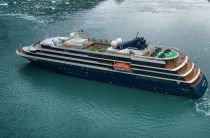
AOV-Atlas Ocean Voyages unveils 2026 Summer itineraries with 28 new ports
Atlas Ocean Voyages has revealed its 2026 summer itineraries, introducing a range of expeditions across the Canadian Arctic, Bermuda, the Caribbean...
November 24, 2024 - Cruise Industry
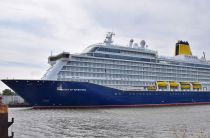
Saga Cruises UK unveils immersive Winter 2026 itineraries with all-inclusive shore excursions
The UK-based Saga Cruises has unveiled a fresh collection of itineraries for Winter 2026, now featuring inclusive excursions at every port. New...
November 7, 2024 - Cruise Industry
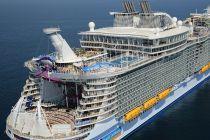
RCI-Royal Caribbean unveils 2026 European itineraries (60+ ports, 5 departure ports)
Travelers can explore Europe’s top destinations across more than 60 port cities with 5 distinctive cruises departing from homeports Piraeus...
November 4, 2024 - Cruise Industry
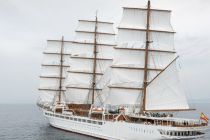
Sea Cloud Spirit ship scheduled for roundtrip cruises from Venice in 2025 summer
Sea Cloud Cruises/fleet will introduce on its flagship Sea Cloud Spirit a new series of 9-night roundtrips from Venice (Italy) in summer 2025. For...
October 27, 2024 - Cruise Industry
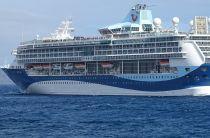
Marella Discovery 2 ship to host Solar Eclipse cruise 2026 in the Mediterranean
Marella Cruises, TUI’s UK cruise line, has announced a distinctive solar eclipse voyage scheduled for the summer of 2026. On August 12th, 2026...
October 21, 2024 - Cruise Industry

Marella Discovery 2 ship to sail Solar Eclipse Cruise in August 2026
TUI's Marella Cruises UK has revealed plans for a special solar eclipse voyage aboard the Marella Discovery 2 ship in the summer of 2026. This...
October 15, 2024 - Cruise Industry
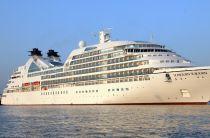
Seabourn sets sail for 2026: Solar Eclipses, Northern Fjords, and Asian Escapes
The ultra-luxury cruise company Seabourn unveiled its 2026 itineraries fleetwide. These voyages will cover a wide range of destinations, with...
October 13, 2024 - Cruise Industry

Marella Cruises UK unveils Summer 2026 itineraries featuring Solar Eclipse voyage
Marella Cruises has unveiled its summer 2026 itineraries, featuring a notable solar eclipse sailing as part of its seasonal offerings. The new...
October 10, 2024 - Cruise Industry
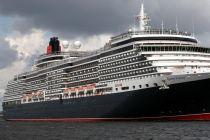
Cunard brings Acosta Danza to sea with special residency on Queen Victoria
Cunard has announced a special 6-week residency of the renowned Cuban ballet company Acosta Danza aboard Queen Victoria from May 26th to July 7th...
October 5, 2024 - Cruise Industry
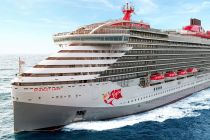
Virgin Voyages reignites 2025 Summer Season Pass for digital nomads at sea
Virgin Voyages has reintroduced its highly sought-after Summer Season Pass for 2025, offering an extended work-from-sea experience for travelers...
September 28, 2024 - show more news
